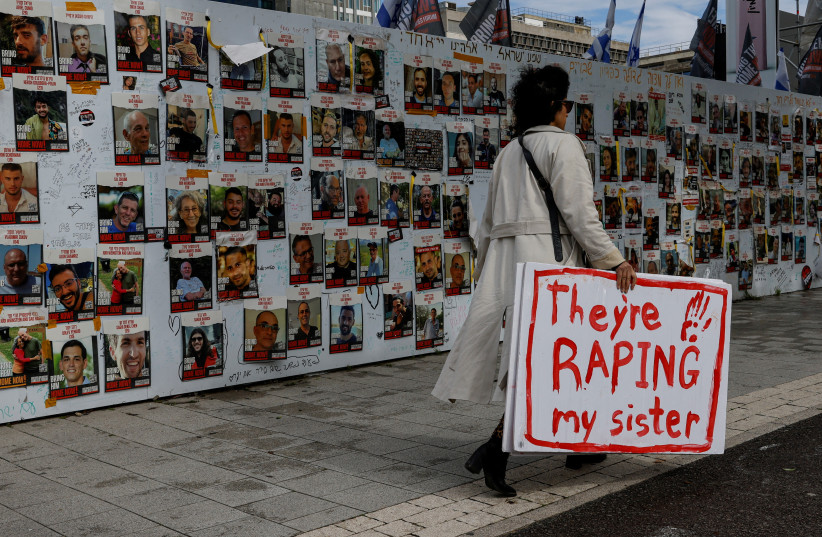The debate over a hostage deal is excruciating, and disagreements are reasonable
Those of us without loved ones that Hamas is holding captive in Gaza cannot fathom the horror the hostages are going through or the agony their relatives are experiencing.
We can feel deep sorrow and grief at the plight of the hostages, and we can sympathize and empathize with the families, but we cannot really feel their pain. Not really.
Consequently, none of us can judge them for their efforts to ensure their loved ones return. Most of us would do the same were it our brothers or sisters, mothers or fathers, sons or daughters languishing in the bowels underneath Gaza: organize demonstrations and vigils, lobby politicians around the world, demand at every opportunity and from every microphone that the government must “bring them home now.”
And now, amid increasing signs that some deal for the hostages’ release is in the works, the country will need to grapple with the question: “at what price?”
At what price should Israel agree to a deal?
At the price of emptying Israeli jails of all the Palestinian security prisoners, including mass murderers, which is reportedly one of Hamas’s demands? At the cost of permanently stopping the war in Gaza and withdrawing the IDF, another Hamas demand?
These are excruciatingly difficult dilemmas.

Some say, any price necessary; others say, think of the long-term consequences
Most of the hostages’ families will say, understandably, that no price is too high, that human life comes before all, and that since Israel was derelict and “allowed” its citizens to be snatched from their beds and homes, it has an obligation to the hostages themselves and their families to pay any price the terrorists ask to bring them home.
Others, however, will disagree, saying that Israel should be willing to pay a high price, but not an exorbitant price.
They will say that Israel should be willing to release some security prisoners but not open up the jails and let them all out; that Israel should be willing to stop the fighting for a few weeks and even months but not remove the troops from Gaza nor declare the wars’ end, because that would essentially mean that Hamas remains in power, in place to strike another day.
According to this argument, paying an exorbitant price will bring dozens of hostages home in the short term – a blessed result – but will endanger hundreds and even thousands of other Israelis down the line. First of all, they argue, this type of deal will show that hostage-taking pays, bringing a further incentive into the hands of Hamas and other terrorist groups to kidnap more Israelis, both here and abroad.
Secondly, this argument holds, if Israel turns hardened terrorists back onto the streets, it is inviting more and more terror. Just look, they say, at previous prisoner exchanges, such as the Jibril Agreement in 1985 that saw Israel release 1,150 prisoners – including Hamas founder Ahmed Yassin – for three Israelis. Or the 2011 Gilad Schalit deal, which saw Schalit released for 1,027 security prisoners, including Hamas leader Yahya Sinwar. How many deaths are Yassin and Sinwar responsible for?
This is an excruciating dilemma and either position is valid
Both arguments for and against paying any price for the hostage’s release have their strengths and weaknesses. But what is essential to keep in mind when conducting this debate is that holding either position is valid.
Those who feel Israel should pay almost any price are not unconcerned about the future of the state nor callous to the families of terrorist victims whose murderers may be set free. Rather, their foremost concern is saving the lives of their loved ones. That is as understandable as it is legitimate.
Nor, however, should those be delegitimized who feel that emptying Israeli jails of all the security prisoners or stopping the war is too high a price to pay. It is not as if they don’t care about the fate of the hostages; it is not as if they don’t understand what the hostage’s relatives are going through. They are not bad or unfeeling people.
Rather, they are genuinely concerned about the long-term consequences for the state’s security if a deal is reached at any price.
A national debate over this issue is legitimate. How the country conducts it will be a test of whether it learned one of the key lessons of October 7. Don’t – for the sake of Israel’s future – delegitimize, nor question, the patriotism or loyalty of those on the other side of a public policy debate.





Comments are closed.